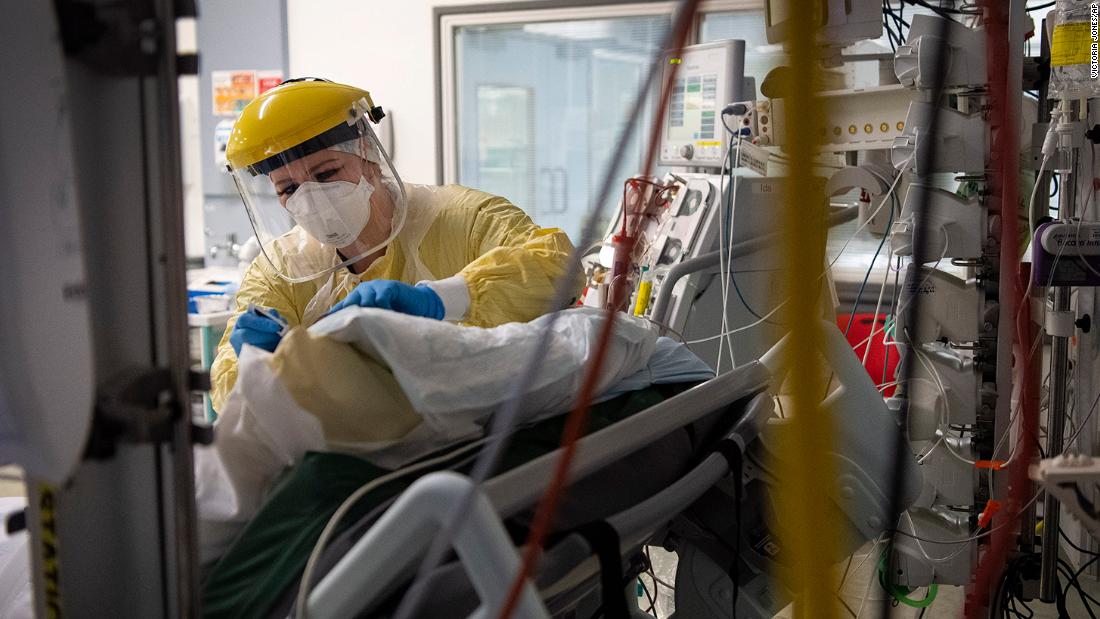SIREN’s research examined the effect of infection on more than 20,000 volunteer health workers from across the UK and a pre-study study found only 44 cases of reinfection among 6,614 people.
Two groups of people were followed for up to six months, one without evidence of previous infection and the other with evidence of previous infection.
The study – which has not yet been peer-reviewed – concluded that prior infection reduces the chances of catching the virus again by 83% for at least five months.
The cohort has been regularly tested for Covid-19.
“About 6000 health care workers were people with evidence of SARS-CoV-2 infection … and about 14,000 healthcare workers were people without any evidence of previous SARS-CoV-2 infection, Tom Wingfield, senior clinical lecturer at the Liverpool School of Tropical Medicine, told the UK Media Science Center.
“The results indicate that re-infection rates in the positive group were 83% lower than in the negative group during the follow-up period.”
But the researchers cautioned that protection was not complete and that it was not clear how long any immunity would last. It is also possible that those with some degree of immunity to the virus may still be able to pass it on to others.
Study leader Susan Hopkins, senior medical advisor at PHE and co – said.
“Even if you think you already have the disease and are protected, you can rest assured that you are unlikely to get a severe infection. But there is still a risk that you will catch the infection and pass it on to others,” Hopkins said. .
Hopkins emphasized this point during an interview on BBC’s Today on Thursday.
“[Infection] It reduces risk by at least 80% … but does not eliminate it. “
“We found people with very high amounts of the virus in their nasal and throat swabs, which could easily be in the range that might cause transmission levels to other individuals.” Hopkins stressed that people who have previously contracted Covid-19 still need to comply with social distancing rules to avoid transmitting the disease.
England is currently under a strict national lockdown after a spike in cases during the holiday period. The UK has recorded more than 3.2 million cases.
“What [the study] It really highlights that right after the injury, you likely have a high level of protection, but that will degrade over time, ” Niall Ferguson, a prominent epidemiologist at Imperial College London, told the BBC.
“Transmission is now slower than it would have been in the absence of people infected with the virus, and those who have contracted the virus before are less likely to be infected – this cumulatively slows the spread.”
“This study supports the hypothesis that the primary infection … provides a high degree of immunity to recurrence in the short to medium term; with comparable levels of prevention of symptomatic infection as the current vaccines licensed for adults of working age,” Report notes.
“Primary infection also reduces the risk of asymptomatic infection and thus transmission; this is especially important in [that]… Healthcare has been identified as a potential driver of ongoing societal mobility in Wave 1 in the UK. “
Researchers will continue to study the antibody responses to the infection and the effect of Covid-19 vaccines.

“동민은 커피에 대한 깊은 지식을 갖춘 전문가로, 다양한 커피 블렌드와 추출 방식에 대한 연구를 해왔습니다. 게임 세계에서도 그의 이름은 잘 알려져 있으며, 그의 취향은 다양한 게임 장르를 아우릅니다. 알코올과 특히 베이컨에 대한 그의 열정은 독특하며, 다양한 행사와 이벤트의 주최자로서 그의 통찰력은 뛰어납니다.”








